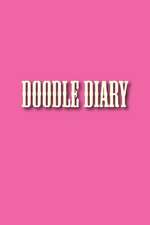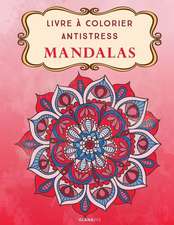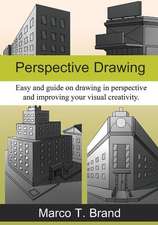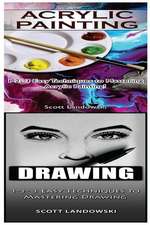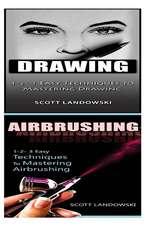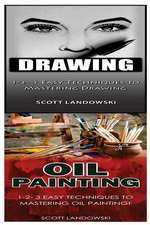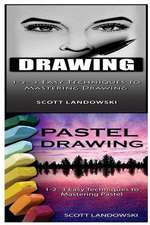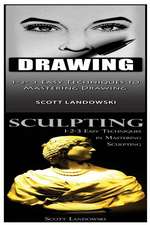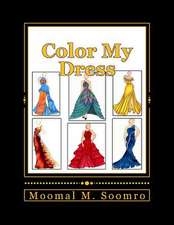The Practice and Science of Drawing: A Journey Around the World
Autor Harold Speeden Limba Engleză Paperback – 30 noi 2011
| Toate formatele și edițiile | Preț | Express |
|---|---|---|
| Paperback (6) | 74.93 lei 3-5 săpt. | |
| EMPIRE BOOKS – 30 noi 2011 | 74.93 lei 3-5 săpt. | |
| Dover Publications – 31 mai 1972 | 79.93 lei 3-4 săpt. | |
| Booksurge Publishing – 31 oct 2008 | 90.94 lei 3-5 săpt. | |
| ALPHA EDITION – 30 iun 2024 | 136.48 lei 3-5 săpt. | |
| Iap - Information Age Pub. Inc. – 31 mai 2011 | 89.93 lei 6-8 săpt. | |
| Alpha Editions – 2 oct 2019 | 136.92 lei 6-8 săpt. | |
| Hardback (2) | 155.59 lei 6-8 săpt. | |
| Iap - Information Age Pub. Inc. – 31 oct 2010 | 155.59 lei 6-8 săpt. | |
| Benediction Classics – 22 aug 2010 | 165.15 lei 6-8 săpt. |
Preț: 74.93 lei
Nou
14.34€ • 14.97$ • 11.87£
Carte disponibilă
Livrare economică 14-28 martie
Specificații
ISBN-10: 1619492377
Pagini: 168
Dimensiuni: 203 x 254 x 9 mm
Greutate: 0.35 kg
Editura: EMPIRE BOOKS
Textul de pe ultima copertă
Much of the learning to practice as well as to appreciate art is concerned with understanding the basic principles. One of these principles is what Harold Speed calls "dither," the freedom that allows realism and the artistic vision to play against each other. Very important to any artist or work of art, this quality separates the scientifically accurate from the artistically accurate. Speed's approach to this problem is now considered a classic, one of the few books from the early years of this century that has continued to be read and recommended by those in the graphic arts.
In this work, Harold Speed approaches this dynamic aspect of drawing and painting from many different points of view. He plays the historical against the scientific, theory against precise artistic definition. He begins with a study of line drawing and mass drawing, the two basic approaches the artist needs to learn. Further sections carry the artistic vision through unity and variety of line and mass, balance, proportion, portrait drawing, the visual memory, materials, and procedures. Throughout, Speed combines historical backgrounds, dynamic aspects which each technique brings to a work of art, and specific exercises through which the young draughtsman may begin his training. Although not a technique book in the strict sense of the terms, "The Practice and Science of Drawing" brings to the beginner a clear statement of the principles that he will have to develop and their importance in creating a work of art. Ninety-three plates and diagrams, masterfully selected, reinforce Speed's always clear presentation.
Harold Speed, master of the art of drawing and brilliant teacher, has long been cited for this important work. For the beginner, Speed will develop a sense for the many different aspects which go into an artistic education. For the person who enjoys looking at drawings and paintings, Speed will aid developing the ability to see a work of art as the artist meant it to be seen.







